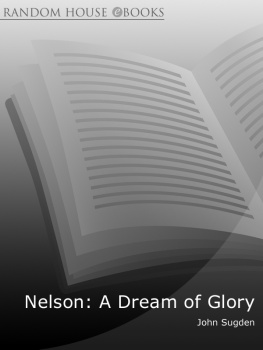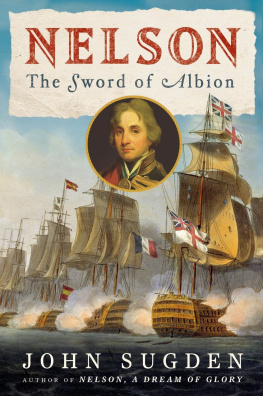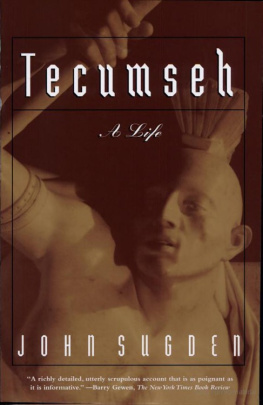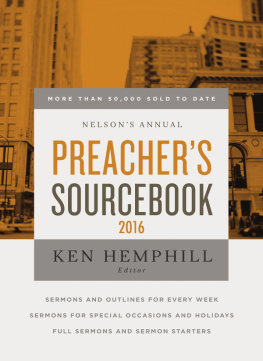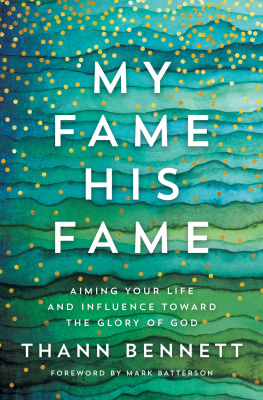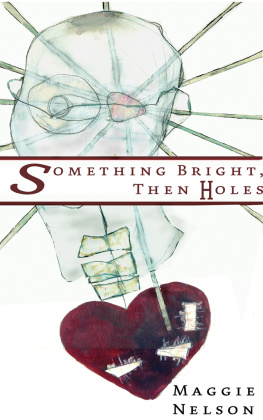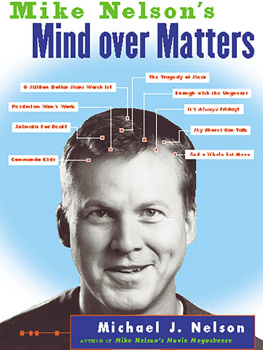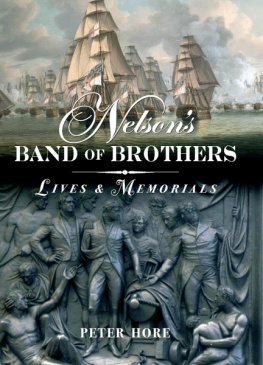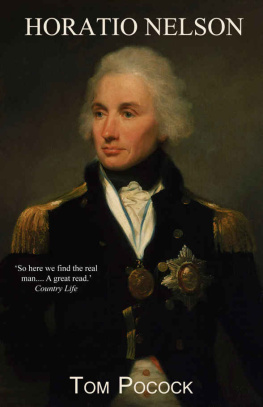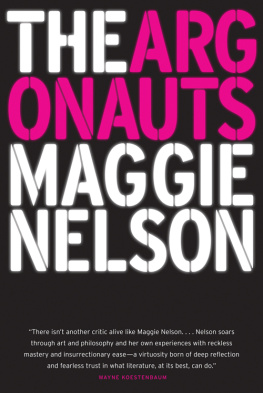PIMLICO
725
NELSON
The recipient of numerous awards, John Sugden has degrees from three British universities and was formerly a lecturer and senior research fellow. He has pursued historical research in archives throughout Britain and North America and his books and many articles have been published to great acclaim. With Nelson Dr Sugden returns to a lifelong interest in naval history. A member of the Society for Nautical Research for forty years, his publications include a popular biography of Sir Francis Drake. It was while researching a doctorate on Nelsons navy thirty years ago that he recognised the extent of the untapped materials and the need for a major new biography.
Praise for Nelson: A Dream of Glory
This monumental tome is the finest yet written on Englands great naval hero... chock-full of fascinating detail, from Nelsons battles to his first mistress, Adelaide Correglia. Frank McLynn, Daily Express
Sugdens account... is richly absorbing, and his fluent, buoyant prose scuds along, carrying the reader with it. This must surely become a standard life. Jane Ridley, Spectator
Sugden makes very effective use of the new material to challenge the traditional story. Moreover... he has tracked down some of the little known characters junior officers, even ordinary seamen, and brought them alive by meticulous research. Colin White, Observer
A masterpiece of the biographers art... A book that will be the yardstick by which all other Nelson biographies will be judged for decades to come. Neil Hanson, Sunday Times
Sugdens passion for his subject and astonishing research reveal the blossoming hero in a new light. Lucy Moore, Daily Mail
The massive, magisterially detailed first volume of what will surely be the definitive life. T. J. Binyon, Scotsman
The most detailed study of Nelson ever published. F. J. M. Scott, History Today
NELSON
A Dream of Glory

JOHN SUGDEN

This eBook is copyright material and must not be copied, reproduced, transferred, distributed, leased, licensed or publicly performed or used in any way except as specifically permitted in writing by the publishers, as allowed under the terms and conditions under which it was purchased or as strictly permitted by applicable copyright law. Any unauthorised distribution or use of this text may be a direct infringement of the authors and publishers rights and those responsible may be liable in law accordingly.
Version 1.0
Epub ISBN 9781446444580
www.randomhouse.co.uk
Published by Pimlico 2005
2 4 6 8 10 9 7 5 3
Copyright John Sugden 2004
John Sugden has asserted his right under the Copyright, Designs and Patents Act 1988 to be identified as the author of this work
This book is sold subject to the condition that it shall not, by way of trade or otherwise, be lent, resold, hired out, or otherwise circulated without the publishers prior consent in any form of binding or cover other than that in which it is published and without a similar condition including this condition being imposed on the subsequent purchaser
First published in Great Britain by
Jonathan Cape in 2004
Pimlico edition 2005
Pimlico
Random House, 20 Vauxhall Bridge Road,
London SW1V 2SA
Random House Australia (Pty) Limited
20 Alfred Street, Milsons Point, Sydney,
New South Wales 2061, Australia
Random House New Zealand Limited
18 Poland Road, Glenfield,
Auckland 10, New Zealand
Random House South Africa (Pty) Limited
Endulini, 5A Jubilee Road, Parktown 2193, South Africa
Random House UK Limited Reg. No. 954009
A CIP catalogue record for this book
is available from the British Library
ISBN 9780712667432 (from Jan 2007)
ISBN 0712667431
Hope revives within me. I shall
recover, and my dream of glory be fulfilled.
Nelson will yet be an admiral.
Horatio Nelson, aged twenty-one, shipped home with malaria, 1780
This one is for my mother, Lily,
who told me that Nelson was the great man;
for Phil, who prefers James Cook;
and for Terri,
who alone of us has crewed aboard a tall ship
CONTENTS
LIST OF ILLUSTRATIONS
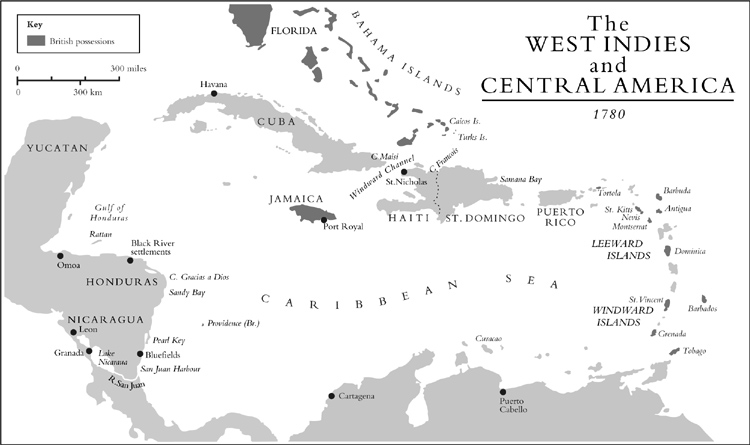
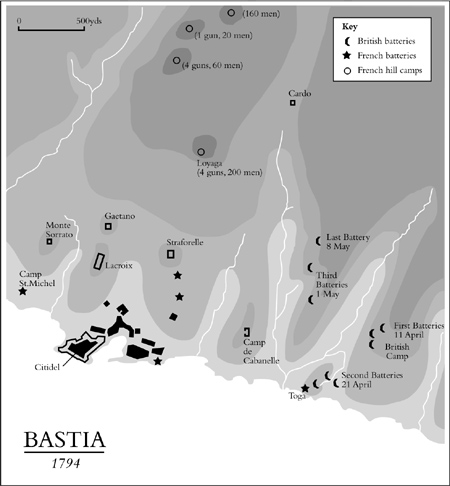
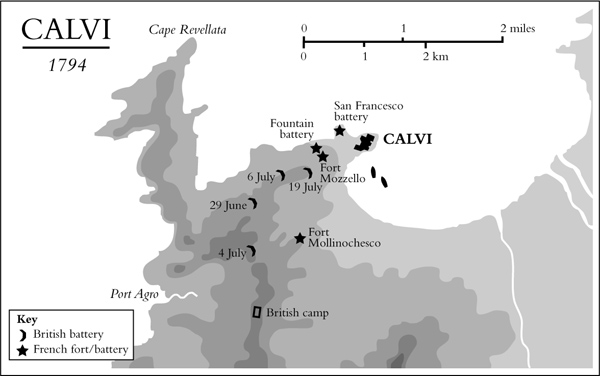
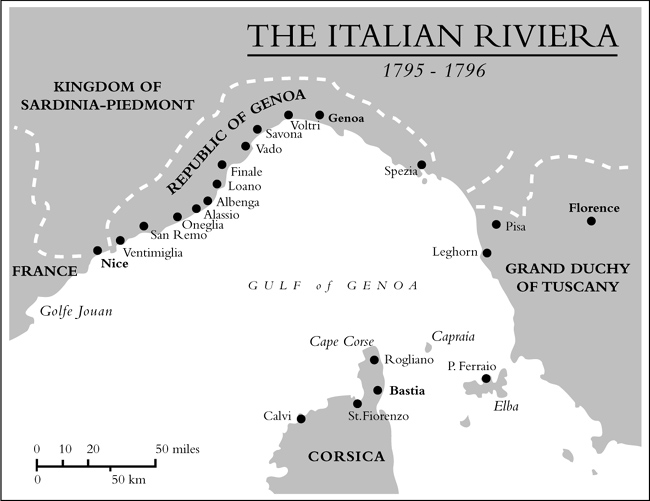
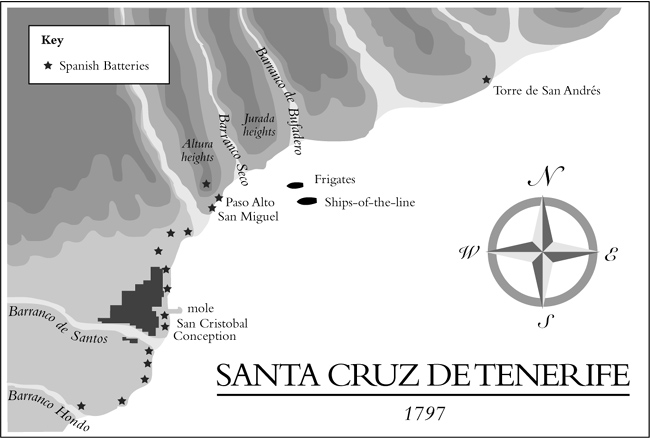
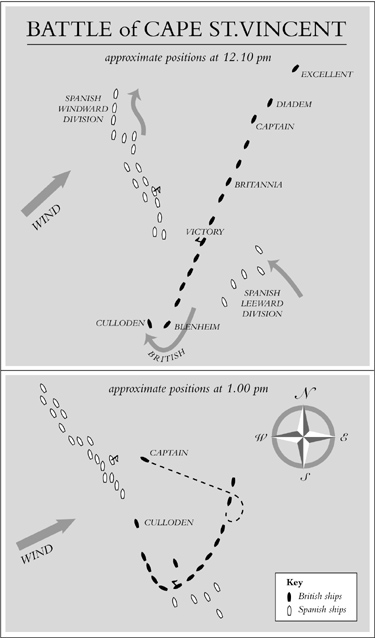
INTRODUCTION
Nelson was once Britannias God of War
And still should be so, but
The tide has turned;
Theres no more to be said of Trafalgar.
Tis with our hero quietly inturrd.
Lord Byron, Don Juan
N EVER , recalled secretary John Barrow of the Admiralty, can I forget the shock I received on opening the board-room door the morning after the arrival of the despatches, when Marsden called out, Glorious news! The most glorious victory our brave navy ever achieved but Nelson is dead!
To the British people, and many others fighting Napoleon, the death of Nelson in 1805 was one of those ineffaceable events that live as long as memory. The nation won its greatest naval victory and went into mourning. As Josiah Wedgwood the younger remarked, grief and regret were so general and so strong as quite to check and abate the delight the victory would otherwise have created in all our bosoms.
Britons of every stamp remembered where they heard the news and the thoughts it inspired. The essayist Charles Lamb, no admirer of public persons, confessed to have been a follower of Nelson ever since he had seen him walking in Pall Mall looking just as a hero should look. Now, he felt very much cut about it indeed because nobody is left of any name at all. The Wordsworths were in their native Lake District. Dorothy burst into tears, while her brother refused to believe that Nelson was dead until he had run into a Patterdale inn to confirm
Coleridge was in Naples when the news reached him. When he [Nelson] died it seemed as if no man was a stranger to another, for all were made acquaintances in the rights of a common anguish, he wrote. Never can I forget the sorrow and consternation that lay on every countenance... Numbers stopped and shook hands with me, because they had seen tears on my cheek and conjectured that I was an Englishman, and several, as they held my hand, burst themselves into tears. But it was that other old pantisocrat, Robert Southey, who perhaps best captured the national mood. The death of Nelson was felt in England as something more than a public calamity, he remembered from the perspective of another eight years. Men started at the intelligence and turned pale, as if they had heard of the loss of a dear friend. An object of our admiration and affection, of our pride and of our hopes, was suddenly taken from us, and it seemed as if we had never, till then, known how deeply we loved and reverenced him.

